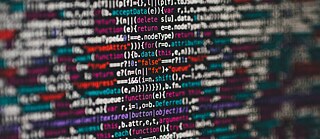As interpersonal human contact has become a health risk, Liwen Qin outlines how information advances in digitalization can help us cope with the global COVID-19 pandemic.
As the COVID-19 pandemic, which started in China, sweeps across the world, governments, companies, and individuals are all struggling to cope with major disruptions in their daily lives. In January and February 2020, the Chinese government imposed restrictions on the movement of 100 million to 500 million people. Shops, factories, and schools have been closed for about six to seven weeks. At a time when human contact has become risky, information technology greatly reduces the negative impact of this unexpected disruption.
Food and hygiene in quarantine
The biggest challenge for people bound to their home during city lockdowns or quarantine is to meet the need for daily supplies, like food and toiletries. In China, highly developed e-commerce and delivery services became the lifeline of many households, in this most difficult time. In some places, automated package sorting, self-driving cars, drones, and package stations (like mailbox for packages) helped to reduce risky human contact to a minimum.Artificial intelligence in health diagnostics
Limited medical resources are yet another challenge in this public health crisis. In China, hospitals ran out of capacity in the early stages of the COVID-19 pandemic. Many sick people couldn’t get tested or treated for the virus. Various internet companies and local governments quickly set up virtual medical consultation platforms. By consulting doctors online, instead of visiting hospitals, people who were not yet infected could avoid catching COVID-19 in clinics or private practices. A number of Chinese companies developed artificial intelligence (AI)-services, which enabled local governments to predict outbreaks ahead of time. Other AI-technologies were deployed in hospitals, as part of diagnosing patients suspected of being infected with the coronavirus. By maximizing the use of limited medical resources, these technologies reduced the stress on overcrowded hospitals greatly. Information technology proved an asset in handling the immense challenge, the novel COVID19 virus has posed.Digital education
Online streaming and teaching software has helped teachers and students stranded at home continue their education almost as usual. Teachers gradually figured out ways to teach not only abstract lessons like mathematics and languages, but also hands-on classes like art, music and physical education in a virtual learning environment. It could get a little annoying for neighbors when a child jumped up and down with their virtual physical education teacher on the upper floor. But this is a time for mutual tolerance and understanding.Home-office: wonderful as an option
Companies that rely on offline operations, such as manufacturing or event-hosting, have suffered considerably. However, firms where a lot of work can be done digitally, are currently finding themselves to be coping astonishingly well. Online conference systems, instant messaging software, and digital file-sharing services have enabled companies to operate smoothly. The only difference: Their “offices” have been dispersed into the bedrooms or studies of family homes. Staff now find themselves working longer hours, without “home” as a space of mental and physical escape. Many people may realize just now, how much they yearn for their work-place offices, for the first time.Let`s stay human!
Before effective medicine or a vaccine against COVID-19 is invented, which may take another year or two, these new forms of organization and lifestyle may become a normal routine in many parts of the world. The most important thing that information technology has provided us with, however, is not food, education or income, but the ability to connect emotionally with one another through technology. This is just as essential as everything else.“Frankly …”
On an alternating basis each week, our “Frankly …” column series is written by Liwen Qin, Maximilian Buddenbohm, Dominic Otiang’a and Gerasimos Bekas. In “Frankly … posthuman”, Liwen Qin takes a look at technical advances and how they affect our lives and our society: in the car, in the office, and at the supermarket checkout.
March 2020
